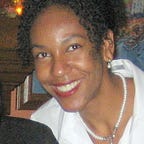Race Discrimination on the Basis of Hair
-Your afro is a distraction for the classroom.
-You need to wear your hair neat and straightened in the office.
-Braids and natural hairstyles don’t fit our corporate culture.
-Your locs are unsanitary and unprofessional.
-You keep changing your hairstyle. I can’t keep up.
-You’ll need to straighten your hair to make it to the C-Suite.
Ever heard these comments?
Last week, the New York City Commission on Human Rights released new guidelines prohibiting discrimination based upon certain hair textures or hairstyles, particularly those of African Americans.
Like many African American women — and men — I was elated at the steps that the New York City Commission on Human Rights (NYCCHR) has taken to help prohibit race discrimination on the basis of hair, and to give legal recourse to those who have been made to suffer such outrageous and belittling discrimination.
I, like many African American women, have been told on more than one occasion that I should straighten my hair to be beautiful, to be professional, to be socially accepted, and to achieve career advancement and accolade.
I, like many African American women, and men, have been made to feel that what grows out of my head, naturally, must be altered, tamed, tamped down — no matter the cost — financially, physically or emotionally.
The marginalization and discrimination of black hair and hairstyles is why so many of us cheered for Black Panther as we saw positive images of our hair’s natural beauty and allure in Wakanda!
The NYC guidelines protects our right to maintain natural hair, locs, cornrows, twists, braids, Bantu knots, fades, and afros.
Hair Discrimination: Alive and Kicking
Make no mistake, hair discrimination is alive and well. In a recent case from New Jersey, a high school wrestler, Andrew Johnson, was required to have his locs cut, or forfeit a wrestling match. In a humiliating and cruel display, his locs were forcibly cut, as others looked on, just minutes before his wrestling match was to take place.
Guidelines on Race Discrimination on the Basis of Hair
In a press release issued by the New York City Commission on Human Rights (NYCCHR), the Commission stated that they are currently investigating seven discrimination cases on the basis of natural hairstyles. According to the New York Times, the commission can levy penalties of $250,000 for violations of its anti-discrimination guidance, with no cap on damages.
This is welcome news–especially for those that have suffered discrimination based upon the varied textures and hairstyles popular within the African American culture.
Under the New York City Human Rights Law (NCYHRL), discrimination is prohibited by most employers, housing providers and providers of public accommodations.
The guidance issued by the NYCCHR is very specific, and addresses many hairstyles that are culturally significant to African Americans.
Under the NYCCHR guidance for hair discrimination, the New York City Human Rights Law (NYCHRL) “protects the rights of New Yorkers to maintain natural hair or hairstyles that are closely associated with their racial, ethnic, or cultural identities.
For Black people, this includes the right to maintain natural hair, treated or untreated hairstyles such as locs, cornrows, twists, braids, Bantu knots, fades, Afros, and/or the right to keep hair in an uncut or untrimmed state.”
The NYCCHR guidance goes on to say that it is also a violation of the NYCHRL to have a grooming policy requiring employees to alter the state of their hair to conform to the company’s appearance standards, including having to straighten or relaxhair (i.e. use chemicals or heat).
While there is much to be done in terms of eliminating hair based discrimination, the steps taken by the NCYCHR are a necessary and affirming move in the right direction.
